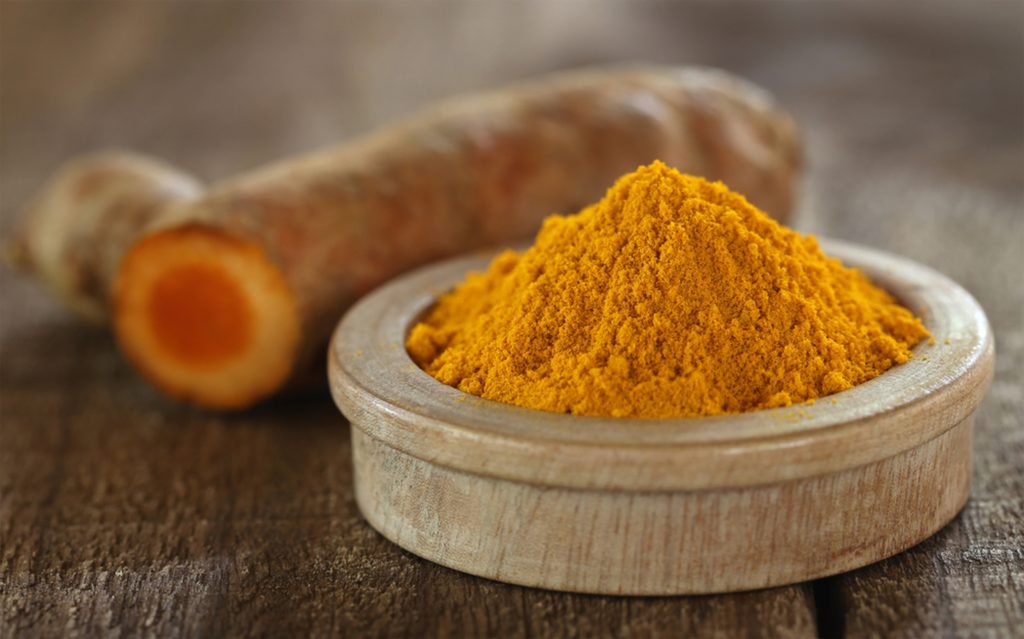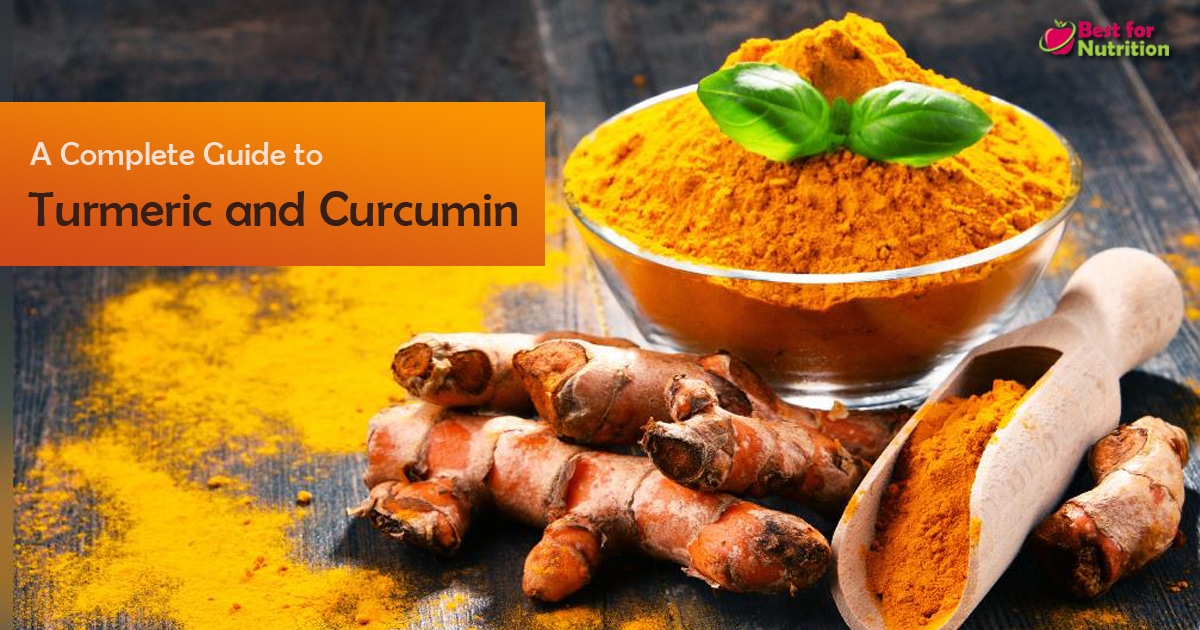Gout, a type of inflammatory arthritis, occurs due to the accumulation of uric acid.
It is commonly characterized by pain and swelling in the joints of feet, especially the big toe.
Turmeric has been used, since ancient times, as a home remedy for tackling gout.
Its potent anti-inflammatory property has shown to bring immense relief in gout patients.
Read on to learn how turmeric works to relieve gout symptoms, as well as, the different ways turmeric can be used for treating gout.
- What Causes Gout
- What is Turmeric
- Turmeric & the Kidneys
- Why Use Turmeric for Gout
- How to Take Turmeric for Gout
- When to Take
- Risks and Side Effects
- Other Natural Gout Treatments

What Causes Gout?
Uric acid, also known as monosodium urate, is a waste product of our body and is normally flushed out by the kidneys. The problem of gout occurs in cases when uric acid crystals crank up within our blood in abnormal quantities.
They accumulate in and around the joints and lead to pain and restriction in movement. Our body sets off a defensive response to this excessive uric acid crystals resulting in swelling due to inflammation.
Around two-thirds of uric acid, crystals are produced naturally by our body whereas the remaining one-third is formed when our body disintegrates purines. This is a substance found in high concentrations in seafood, alcohol, or red meat (1).
Postmenopausal women, diabetics, high blood pressure patients, and patients with a thyroid problem or kidney disease are at a high risk of developing gout.
Summary: Uric acid crystals are formed as a waste product and through the breakdown of purine-rich foods. Uric acid buildup results in gout.
What is Turmeric?

Turmeric, also known as Indian saffron, is an integral part of Asian cuisine (2). Polyphenolic substances called curcuminoids present within turmeric are responsible for promoting health and healing.
One of the curcuminoids called curcumin is the active ingredient of this yellow-colored spice root and is known for its anti-inflammatory, anti-oxidant, and anti-cancer properties (3).
Turmeric is derived from the roots of Curcuma longa and is used in several Ayurvedic medicinal preparations to treat various digestive problems, skin conditions, and aches (4).
Summary: Turmeric, a spice, is known for its medicinal benefits. Curcumin is the active ingredient of turmeric and is responsible for the most health benefits of turmeric.
Turmeric & the Kidneys
Kidneys play an extremely vital role in maintaining the normal level of uric acid. This means healthy kidneys that carry out the filtration process efficiently are essential for managing gout.
The efficiency of kidneys in filtering out uric acid may decrease if there are abnormal levels of free radicals in the body as in the case of an unmedicated diabetic.
Curcumin present within turmeric can significantly lower the free radical levels owing to its antioxidant property.
Hence, turmeric supplements can aid the kidneys to function in an effective manner thereby keeping a check on the uric acid levels.
Summary: Turmeric helps to enhance kidney functions to ensure the proper filtration of uric acid.
Why Use Turmeric for Gout?
Owing to its various medicinal properties and health-promoting effects, turmeric is undoubtedly an effective natural remedy for people suffering from gout. Here are the ways through which turmeric can cure and prevent painful gout attacks:
Decreases Uric Acid Levels
There are two specific actions by which turmeric reduces the uric acid levels. Firstly, it increases the flushing out of uric acid and secondly, it decreases the chances of uric acid buildup.
These actions happen as turmeric controls the functioning of the proteins that are linked to uric acid transport. At the same time, it enhances kidney function by inhibiting a few biochemical pathways.
Decreases Inflammation
One of the ways of combating gout would be to bring down inflammation as it is a type of inflammatory arthritis.
Turmeric has anti-inflammatory properties as it can affect various inflammatory pathways and inflammatory enzymes.
A study indicates that turmeric is involved in the regulation of around 30 molecular targets including inflammatory cytokines and growth factors, thereby, decreasing inflammation and managing gout effectively (5).
Effective Pain Reliever
Turmeric is a potent painkiller and can bring about pain-relieving effects similar to conventional painkillers like aspirin (6).
The biggest advantage of turmeric as a painkiller is that there is no fear of developing tolerance and it acts quickly, almost within a span of 24 to 48 hours.
A study suggests that turmeric can help relieve postoperative pain and promote healing (7). By inhibiting an enzyme and a protein in the body that promotes inflammation and pain, turmeric reduces pain.
Lesser Side Effects Compared to Other Painkillers
Turmeric is quite safe when used as a painkiller as it does not have any side-effects unlike popular painkillers like ibuprofen that can cause digestive problems like acid reflux, gastritis, or gastric ulcers.
What’s more interesting is that turmeric protects the stomach from unwanted perils owing to its antiulcerogenic property (8).
Enhanced Weight Loss
Obesity is one of the risk factors for developing high uric acid levels. Therefore, obese individuals are at a higher risk of developing gout.
Turmeric has shown to aid weight loss when used along with a balanced diet and a good fitness routine (9).
Better Metabolic Health
Turmeric has shown to enhance the metabolic health along with being helpful in weight loss. It brings about the following changes to improve the metabolism-
- Decreasing blood pressure,
- Lowering cholesterol levels,
- Keeping the heart protected,
- Decreasing the metabolic syndrome symptoms
When the metabolic processes are set right, the risk of a gout attack automatically decreases along with the lowering of uric acid levels.
Antioxidant Properties
Antioxidants are substances that protect the body from the damage caused by free radicals.
A disturbance in the balance of antioxidants and free radicals end up in oxidative stress which in turn, causes inflammation like gout.
Turmeric decreases oxidative stress as it is a good antioxidant and is rich in flavonoids, polyphenols, ascorbic acid, and curcumin. This way turmeric reduces gout inflammation (10).
Summary: Apart from reducing uric acid levels, turmeric lowers inflammation, reduces pain, helps in weight loss, and reduces free radicals.
How to Take Turmeric for Gout
Every individual is different and hence there is no single way that works for everyone. By the hit-and-try method, you need to assess which method of taking turmeric suits you the best.
Along with Food
Turmeric can be added to the food while preparing curries, soups, and sauces, during the frying of eggs or cooking of different rice dishes.
Alternatively, it can be taken in the form of beverages like golden milk, turmeric tea, or smoothies.
One important point to be noted is that turmeric alone is less effective in treating gout owing to the lower concentration of curcumin (the active ingredient) within it.
Curcumin supplements available in the market, have higher doses of curcumin that may benefit more.
Turmeric, when consumed with black pepper, is more beneficial as piperine present within black pepper increases the bioavailability of curcumin by enhancing the absorption inside the gut (11).
Topical Application of Turmeric
Few individuals have found relief from gout by applying ointments or creams containing turmeric.
Although the efficacy of topical application needs more scientific evidence, turmeric topical products are easily available at health stores.
You can make your own turmeric paste by mixing one tablespoon of yogurt and 1 teaspoon powdered turmeric with honey or coconut oil. Coat the affected joint with this paste for around 15 minutes and then wash it off.
Turmeric Supplements
Turmeric supplements are available in tablets, capsules, powders, gummies, and extracts.
Many other ingredients like ginger are added to these supplements to increase the anti-inflammatory action.
It serves as the best alternative for those who dislike the taste of turmeric.
Besides, it is easier to remember to take a supplement capsule every day than incorporating turmeric in every meal without forgetting.
Consuming them with water would reduce the efficacy of the supplements as the anti-inflammatory ingredients of the supplement are fat-soluble.
Another word of advice would be to take the turmeric supplements with food especially the ones with high fat because of their fat-solubility.
Summary: Turmeric can be taken as it is by incorporating it in curries or drinks or turmeric supplements can be consumed on a regular basis.
When to Take Turmeric for Gout
The simple answer is you can have it any time you want, morning, noon, and night.
As there are practically no side effects of taking turmeric in high quantities, you can add a generous amount of turmeric in every meal you have.
If you are on turmeric supplements remember to take capsules as directed on the packaging at the same time daily. This helps you in making it a habit so that you don’t miss your doses.
Risks and Side Effects of Taking Turmeric for Gout
Very rarely people have reported having mild side effects like nausea, stomach upset, or dizziness.
Turmeric supplements, on the other hand, have a few side effects and should be avoided if a person has:
- Stomach issues: If you have a digestive problem, you can have issues like nausea or diarrhea.
- Bleeding disorders: If you already are on blood thinners, avoid using turmeric supplements as turmeric can thin the blood.
- Kidney stones: As turmeric is high in oxalate, it can increase the risk of developing kidney stones. Hence, people who already have kidney stones, or those who are at risk of getting them should avoid consuming them.
- Iron deficiency: High doses of turmeric can inhibit the absorption of iron. Hence, it is ideal to consult your doctor first if you have iron-deficiency.
- Gallbladder problem: Turmeric can worsen an existing gallbladder issue.
It is not ideal for pregnant women and breastfeeding mothers to consume these supplements as their safety hasn’t been confirmed yet.
Summary: Even though turmeric doesn’t have any side effects, you should seek the advice of your doctor as turmeric supplements may worsen an existing medical condition like iron deficiency or gallbladder issues.
What Else Can I Do to Get Rid of Gout? (Other Natural Gout Treatments)
With the above-mentioned data, you can clearly understand that the consumption of turmeric to treat gout is both safe and effective. Is that all? Are there any other options that you can explore to deal with this painful condition? Let us take a look at each one of them.
Diet
As mentioned earlier, uric acid is produced naturally by our body and is also formed as a by-product during the breakdown of purines.
One important dietary modification that you need to bring about in your diet is avoiding foods that are rich in purines such as oily fish like mackerel, liver, different beans, and red meat.
Alcohol lowers the rate of uric acid elimination from the kidneys. Beer, specifically, is regarded as bad not only due to the alcohol content but is more purine-rich than other beverages.
Drinking plenty of water is the easiest way of warding off of uric acid crystals buildup in the blood. You can install a reminder app to make sure you remain hydrated all day long.
Lifestyle
It has been observed that people with high blood pressure or diabetes are more likely to have gout than those who don’t have them (12). Similarly, there is a close association between high body fat levels and incidence of gout.
Hence, adopting a healthy lifestyle by following a good fitness routine and shifting to a heart-friendly diet is crucial in treating gout and preventing gout attacks.
Vitamin C supplements
According to a study, it was identified that higher levels of Vitamin C lowered the risk of gout (13).
Another study was conducted on 184 gout patients who were given 500 mg of Vitamin C daily for 2 months.
A decline in the uric acid levels was observed causing a significant improvement in these patients.
It was observed that Vitamin C enhanced the kidney functions, thereby, increasing the flushing of uric acid crystals.
Medications
For pain relief, you can always rely on over-the-counter drugs like ibuprofen as they reduce the joint inflammation and are cost-effective as well.
Your doctor may prescribe you urate-lowering drugs or urate-lowering therapies such as allopurinol, pegloticase, and febuxostat.
Summary: Living a healthy lifestyle and being on a nutrient-rich diet prevents a lot of diseases like gout. Vitamin C supplements and medicines prescribed by your physician provide immense relief along with the introduction of turmeric.
The Final Note
Gout can be extremely painful and can diminish the quality of life. Turmeric is, undoubtedly, one of the best and the safest natural remedies for gout.
Curcumin, the active ingredient of turmeric, has proven benefits like antioxidant, anti-inflammatory, and analgesic properties.
Although turmeric relieves the pain and swelling around the joints, it may not suffice in treating gout. You will be prescribed several medicines including those that reduce uric acid levels.
Before taking turmeric supplements, it is recommended to consult with your physician first.





